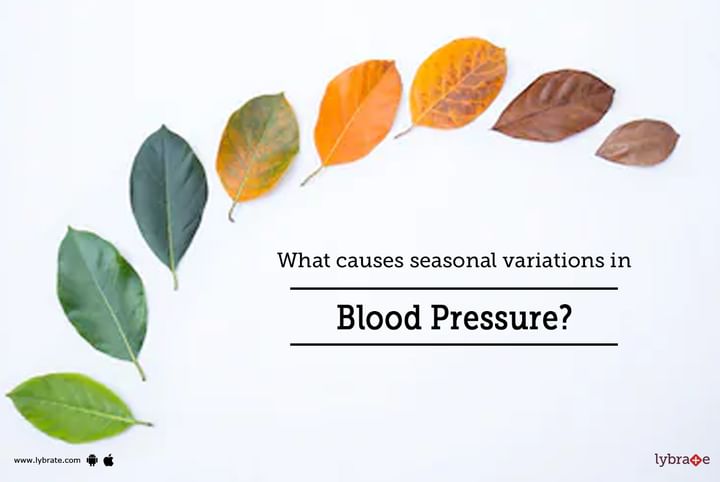What causes seasonal variations in blood pressure?
If you have high blood pressure and are being treated for the same, you ought to know that your blood pressure readings are likely to vary for every season. For instance – blood pressure levels are more likely to be within the desired change in summer than during the cold winter months.
Normal blood pressure is a measurement of less than 120/80mmHg. Prehypertension is when the systolic pressure ranges between 120-139mmHg and the diastolic pressure falls between 80-89mmHg. A blood pressure reading equal to or greater than 140/90mmHg is considered hypertension.
Generally, blood pressure tends to be lower in summer and higher in winter. This is because when the temperature is low, the blood vessels become narrow – this causes the blood pressure to increase since more pressure is required to force blood through the narrowed arteries and veins. Besides, sudden changes in the weather may also affect blood pressure. Your body may react to abrupt changes in atmospheric pressure, humidity, or wind the same way as it reacts to cold.
Other causes of seasonal variations in blood pressure may include reduced physical activity and weight gain – these are common in winter. Earlier studies conducted on hypertension revealed seasonal variations among people of different ages. However, the seasonal variations in blood pressure are more commonly observed in people above age 65. A study was conducted over five years to assess the seasonal fluctuations in blood pressure and different variables of gender, age, BMI, and related complications in elderly people with hypertension. Blood pressure was measured in 182 hypertension patients – 84 women and 98 men, all between ages 65 and 91 years – in 4 seasons.
Both diastolic and systolic mean blood pressure was found to be lower during summer as compared to winter. There were no remarkable seasonal variations between autumn and spring or any connection between the seasonal summer-winter difference in blood pressure as well as other studied parameters. Unexpectedly, elderly patients aged between 65 and 75 years were found to be more sensitive to summer-winter changes than those, who were above age 75. There existed a connection between a large summer-winter difference in systolic blood pressure and a BMI between 20 and 30, but there was none in higher or lower ranges. About 38% of these patients required supplementary anti-hypertension treatment during winter. Furthermore, complications, like stroke and myocardial infarctions were reported more frequently in winter than in any other season.
If you have already been diagnosed with high blood pressure, it is important that you continue to regularly monitor your blood pressure levels throughout the year with seasonal changes. You should also speak with your doctor or healthcare provider, as he/she may recommend altering the dose of medication or switching to some other medications to manage high blood pressure. However, do not change or stop taking your medications unless prescribed otherwise.


+1.svg)
